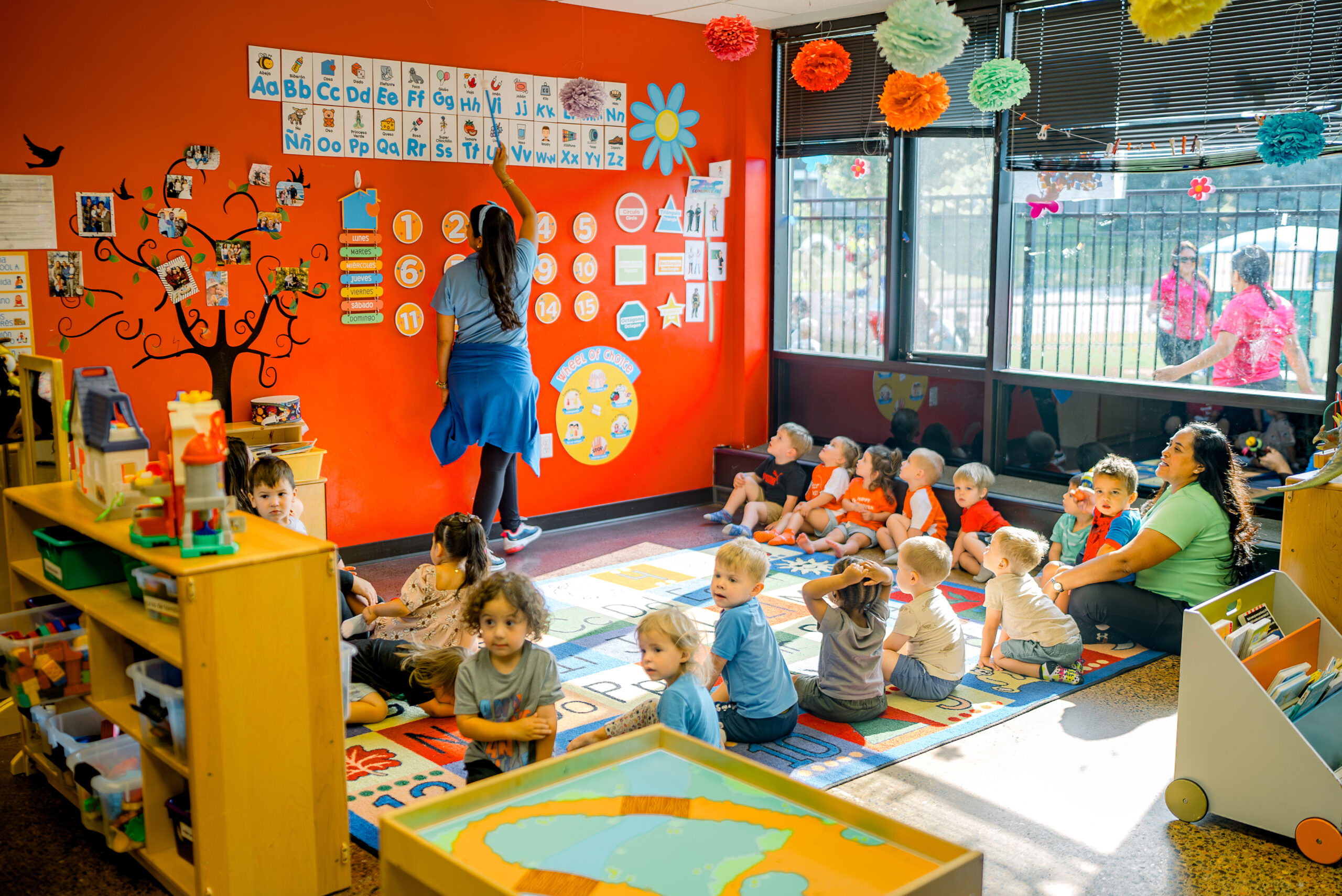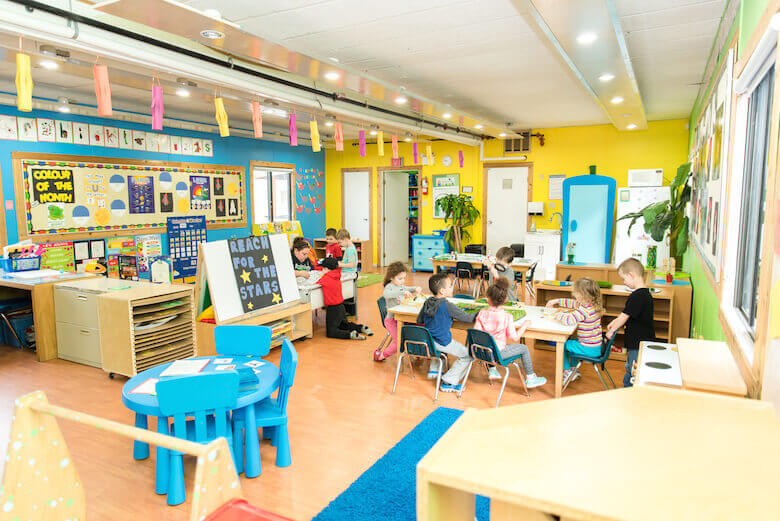Why Parents Trust Daycare North York For Nurturing Growth
Wiki Article
The Duty of Day Care in Fostering Social Abilities and Early Learning
Childcare works as a significant atmosphere for little ones, promoting important social interactions that advertise very early discovering. In this structured setting, youngsters engage with caregivers and peers, developing crucial communication and participation abilities. As they navigate play and numerous tasks, they discover to solve disputes and construct emotional intelligence. Comprehending the subtleties of these communications reveals the profound effect daycare has on a child's development, forming their future connections and scholastic preparedness. What details abilities do children obtain in this setting?The Value of Social Communication in Daycare
While many moms and dads recognize the relevance of very early childhood years education and learning, the function of social interaction in daycare is frequently underestimated. Daycare settings provide kids with important opportunities to engage with peers, cultivating essential social abilities. Throughout these formative years, children learn to navigate numerous social characteristics, such as sharing, cooperation, and conflict resolution. Communicating with varied age groups and individualities improves their capability to adjust to various settings and create empathy towards others.
Building Interaction Skills With Play
Play works as an effective tool for youngsters to construct important communication abilities in childcare setups. Via various play activities, kids talk, share their thoughts, and find out to pay attention to others. Parlor games, for example, motivate them to utilize language in different contexts, promoting vocabulary growth and understanding of social hints.
Narration during play allows kids to communicate feelings and ideas, aiding them develop narrative abilities and confidence in their verbal expressions. In general, play not just works as a pleasurable activity but likewise as an essential platform for establishing the communication abilities essential for successful social interactions in later life.
Urging Participation and Teamwork
Collaboration and synergy are vital abilities that kids can cultivate in daycare atmospheres. Via various group tasks, such as constructing tasks or collective games, kids find out to share duties and work toward common goals. These interactions foster an understanding of the value of listening to others, discussing functions, and endangering when necessary.In day care setups, caregivers often develop possibilities for kids to involve in team effort by urging them to join group tasks. This not only helps children create social bonds but likewise cultivates a feeling of belonging and community.
As they navigate these cooperative experiences, kids acquire valuable understandings right into the dynamics of dealing with peers. They learn to value diverse point of views and acknowledge that each member adds distinctly to the team effort. Eventually, these early lessons in teamwork and synergy here prepared for much healthier connections and effective cooperation in future social and scholastic setups.
Structured Discovering Activities and Cognitive Advancement
Structured learning tasks play an indispensable role in cultivating cognitive development in young kids (Child Care Center). These activities, that include puzzles, storytelling, and hands-on experiments, promote important reasoning and analytic abilities. In a day care setting, structured knowing urges children to engage with their peers, boosting their ability to procedure information and recognize various ideas
With guided play and interactive tasks, children establish foundational skills such as numeracy and proficiency. Activities centered around numbers can assist youngsters comprehend mathematical ideas, while narration boosts language procurement and comprehension. Furthermore, structured learning permits instructors to evaluate developmental progress and tailor activities to private understanding demands.

Including a varied series of structured activities not just advertises cognitive development yet additionally prepares kids for future academic success. By providing a balanced setting that cultivates expedition and query, childcare programs play a necessary duty in forming the cognitive capacities of young students.
Promoting Psychological Knowledge and Self-confidence
Emotional intelligence and self-confidence are crucial components of a child's development, complementing the cognitive abilities fostered via structured knowing activities. In daycare setups, children are offered with opportunities to share their feelings and participate in social communications, which are critical for developing psychological understanding. With assisted play and group tasks, kids find out to recognize their sensations, recognize those of others, and develop compassion.Interaction with peers and caretakers helps to grow self-esteem and resilience. Favorable support and inspiration from adults equip children to take threats and face challenges, promoting a sense of achievement. As they browse social dynamics, children develop confidence in their abilities to communicate, collaborate, and resolve problems - Child Care Center. This caring environment enables the steady advancement of psychological knowledge, which is vital for future social connections and general well-being. As an outcome, day care plays a substantial role in fostering both emotional intelligence and confidence in young kids
Regularly Asked Questions
Just How Can Moms And Dads Pick the Right Daycare for Their Kid?
Moms and dads must think about variables such as location, personnel qualifications, security requirements, educational program, and reviews from other parents when selecting the best day care for their youngster, guaranteeing it aligns with their youngster's developing needs and family members worths.
What Age Is Best for Starting Daycare?

Just How Does Daycare Effect Children's Habits in your home?
Day care typically favorably affects children's behavior at home by improving social abilities, advertising independence, and motivating emotional policy (Childcare Near Me). Because of this, youngsters might show better communication and collaboration, bring about more harmonious household characteristicsAre There Any Type Of Downsides to Day Care Presence?
Yes, there are downsides to day care presence, consisting of prospective splitting up anxiety, exposure to ailments, and inconsistent caregiving. These aspects can impact a kid's psychological health and adjustment in your home, influencing total family members characteristics.Exactly How Can Parents Support Social Skills Discovered at Childcare?
Moms and dads can sustain social skills learned at daycare by assisting in playdates, encouraging cooperative activities, modeling favorable communications, reviewing feelings, and enhancing sharing and interaction in your home, thus improving their youngster's social advancement and confidence.Childcare offers as a substantial environment for young children, facilitating essential social communications that promote early knowing. Daycare setups offer kids with indispensable chances to engage with peers, fostering crucial social skills. Play offers as a powerful tool for kids to build crucial interaction skills in childcare settings. In childcare settings, kids are offered with chances to share their emotions and engage in social interactions, which are important for developing psychological understanding. Daycare usually favorably influences youngsters's habits at home by boosting social skills, advertising independence, and motivating psychological law.
Report this wiki page